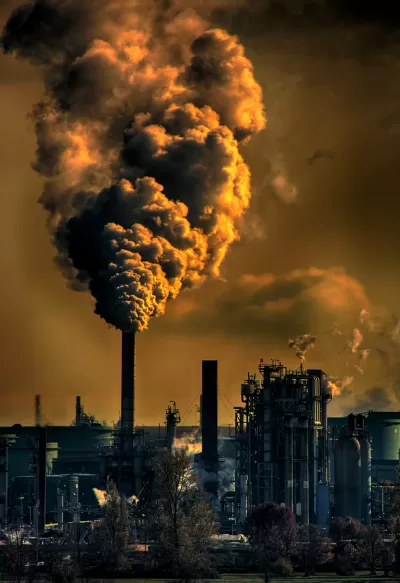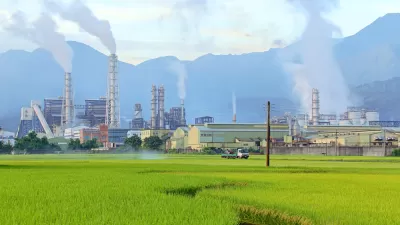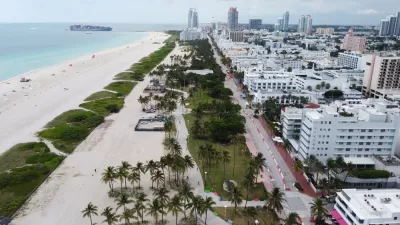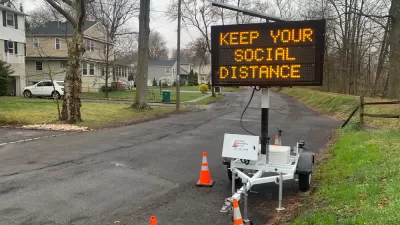The environmental gains at the beginning of the pandemic were only temporary., and there are signs more signs every day that the economy will be dirtier than ever in the future.

"The popular notion that the COVID-19 pandemic has been 'good for the environment'—that nature is recovering while humanity stays at home— appeals to many people grasping for some upside to the global tragedy. Reality, though, may not cooperate with such hopes," writes Beth Gardiner, author of Choked: Life and Breath in the Age of Air Pollution.
While early positive signs have begun to dissipate, the more gloomy signs that the recovery could take steps in the other direction are starting to emerge.
"In early April, with shutdowns widespread, daily global carbon emissions were down by 17 percent compared to last year. But as of June 11, new data show that they are only about 5 percent lower than at the same point in 2019, even though normal activity has not yet fully restarted."
But that's not the only gloomy news. In some parts of the world more capable of reopening the economy than the United States, like China, the recovery is proving dirtier than the pre-pandemic.
"As factories pushed to make up for lost time, pollution returned in early May to pre-coronavirus levels, and in some places surpassed them for a short time, although it’s fallen back a bit since. Meanwhile, provincial officials desperate for the economic boost that comes with any construction are giving the go-ahead to a raft of new coal-fired power plants," reports Gardiner, citing data provided by Lauri Myllyvirta, lead analyst at the Helsinki-based Center for Research on Energy and Clean Air.
Then there are the actions of governments, like the United States, which rolled back environmental protections during the pandemic, allowing polluters free rein if and when business does eventually pick back up. A similar free-for-all is already underway in Brazil, where "illegal loggers have accelerated their destruction of the Amazon rainforest while the coronavirus ravages the nation," according to Gardiner.
FULL STORY: Why COVID-19 will end up harming the environment

Planetizen Federal Action Tracker
A weekly monitor of how Trump’s orders and actions are impacting planners and planning in America.

Map: Where Senate Republicans Want to Sell Your Public Lands
For public land advocates, the Senate Republicans’ proposal to sell millions of acres of public land in the West is “the biggest fight of their careers.”

Restaurant Patios Were a Pandemic Win — Why Were They so Hard to Keep?
Social distancing requirements and changes in travel patterns prompted cities to pilot new uses for street and sidewalk space. Then it got complicated.

Platform Pilsner: Vancouver Transit Agency Releases... a Beer?
TransLink will receive a portion of every sale of the four-pack.

Toronto Weighs Cheaper Transit, Parking Hikes for Major Events
Special event rates would take effect during large festivals, sports games and concerts to ‘discourage driving, manage congestion and free up space for transit.”

Berlin to Consider Car-Free Zone Larger Than Manhattan
The area bound by the 22-mile Ringbahn would still allow 12 uses of a private automobile per year per person, and several other exemptions.
Urban Design for Planners 1: Software Tools
This six-course series explores essential urban design concepts using open source software and equips planners with the tools they need to participate fully in the urban design process.
Planning for Universal Design
Learn the tools for implementing Universal Design in planning regulations.
Heyer Gruel & Associates PA
JM Goldson LLC
Custer County Colorado
City of Camden Redevelopment Agency
City of Astoria
Transportation Research & Education Center (TREC) at Portland State University
Camden Redevelopment Agency
City of Claremont
Municipality of Princeton (NJ)





























